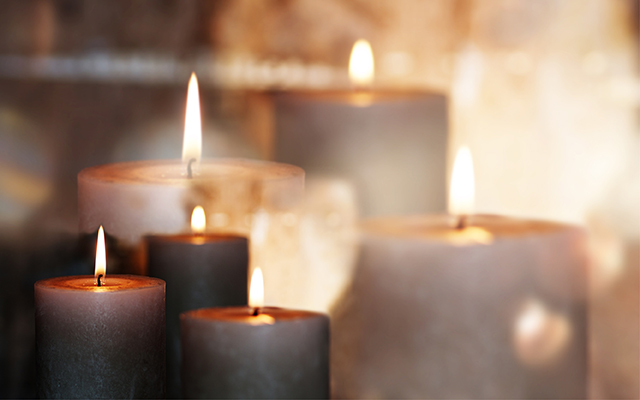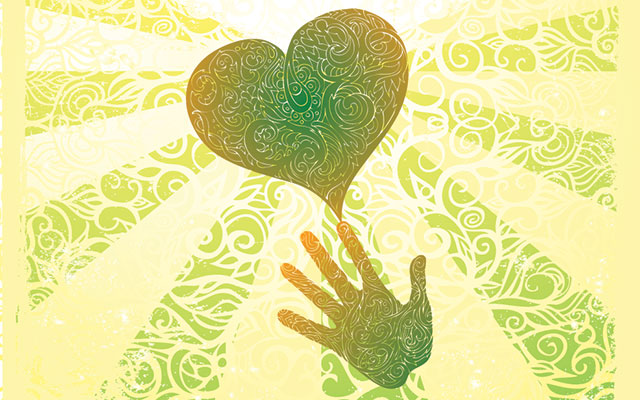Krista Tippett has spent most of her adult life seeking wisdom and finding ways to put it to work.
The Peabody Award–winning broadcaster studied history at Brown University and Cold War politics in Europe. She worked as a freelance correspondent for Newsweek, the BBC, and Die Zeit in Berlin and later served as a special assistant to the U.S. ambassador to West Germany. Back home in the United States, Tippett expanded her horizon beyond politics, earning a masters degree in divinity at Yale.
After conducting an oral-history project in Minnesota, she envisioned a way to put her collected wisdom — and that of others — to its best use. The syndicated radio program she created, On Being (formerly Speaking of Faith), explores the spiritual and religious aspects of life as part of a larger mission to open hearts, expand minds, and upgrade public discourse.
In her latest book, Becoming Wise: An Inquiry Into the Mystery and Art of Living, Tippett weaves together the threads of wisdom she’s collected during 14 years of conversations with scientists, spiritual leaders, CEOs, and artists to help us create hardy spirits, rich inner lives, and healthy relationships.
Experience Life | What’s your definition of “wisdom,” and why do you use that word?
Krista Tippett | Originally, I worked with Einstein’s idea of “spiritual genius,” believing it’s as necessary to the security, dignity, and joy of humanity as objective knowledge. But as I pursued that as a lens for thinking about what I learned through my conversations, I started to land with “wisdom.”
Words like “spiritual genius” or language about saints makes it sound like wisdom is something for a select few, and that these people live on a pedestal that most of us couldn’t live up to or aspire to. But after years of thinking about this topic, what I realized so clearly is that wisdom is accessible to all of us and something everybody can cultivate.
There’s a special thing about wisdom in old age when people have that heft of lived experience, but there are forms of wisdom at every age, including childhood. It’s the raw material of our lives through which wisdom emerges.
EL | What are the raw materials for what you call “the breeding grounds of wisdom”?
KT | I used to have lofty, poetic ideas about discussing time, mystery, and virtues, but after thinking about the elements of life through which wisdom can emerge in the day-to-day, I landed on five factors.
First, there are the words we speak. Second, the bodies we inhabit, and the realization that we’re surrounded by other people inhabiting their bodies and the complexity of that — it’s spiritual and not just physical. Third is hope, which I see as a choice and something we can cultivate like we do muscle memory. Fourth is love — there are many forms of it in our lives, and my sense is that we don’t treat all of them as seriously as we should. Finally, there is faith, whatever that is to you. It’s a fluid, diverse thing in modern lives, but it’s very real and evolving in interesting ways.
EL | Another thing you discuss is the importance of “generous listening.” What do you mean by that?
KT | I put a word like “generous” together with the word “listening” to make a distinction between what we’ve learned to reflexively do culturally. We make listening a passive thing that’s mostly about being quiet while the other person says what he or she has to say and waiting for our turn to say what we have to say. We’re trained to go into situations with our questions, wait for the answer, and ask the next question. But we need to learn and practice listening as a basic social art.
I think, in this moment, we’re being confronted anew with the knowledge that, at the same time as we need to express our truths and passions in the world, we have to find ways to understand each other. We don’t necessarily need to like each other, but we need to find ways to live together and create the world we want our children to grow up in. Being generous listeners is an important tool to make that happen.
EL | How do we listen generously?
KT | Start by understanding that listening is not as much about being quiet as it is about being present. It’s about being in the room not just with your ears, but with the experiences you’ve had, and with an awareness that you’ve had different life experiences than others have.
It’s about bringing real curiosity with you and deciding you want to understand — even if what you’re hearing is uncomfortable. It’s about being willing to see the humanity of the person across from you as much as understanding the words being spoken and the positions being espoused.
“Curiosity” sounds like a simple, basic word, but it doesn’t really have a place in all these other things we’re skilled to do. If you’re in a debate, for instance, you’re not there to be curious about the other position.
Another aspect is being willing to be surprised. Are you really open to and excited about having a deep, long, honest discussion with someone who has a different perspective? Are you ready to accept that he or she may say or do something, or let you into his or her humanity, in a way that unsettles or surprises the assumptions you have?
We also need new formats where there’s a measure of hospitality in how we relate. Creating the capacity for listening starts even before any words are spoken. To do this, think about the setting and whether people will be comfortable. You might meet over food or drink. Make it a pleasurable experience, because being more curious and becoming better listeners, as well as arguers, and getting to know each other’s humanity can be delightful. It can make us feel better.
EL | What do you do to continue exploring the breeding grounds for wisdom in your own life?
KT | I got to a point last year where I was worn out, which happens, but it is ironic because I’m always talking about building resilience. I realized I was falling into the same trap I’m trying to be a healing force in, which is that my inner life was worn out, and physically, I was exhausted.
I’ve just gotten rested, which I think is a form of spiritual work. If we’re not rested, we can’t be at our best and be present for others or ourselves.
I’m trying to disconnect. I love technology and I think a lot of it is good for us. But we have to shape technology to human purposes and create good boundaries. Recently, I bought a watch so I’m not always consulting my phone, and I’m building in more quiet time in the morning to do reading that is nourishing to me, that’s not for work or about escaping.
I meditate and pray. Prayer means something so different for me now than when I was growing up, but I’m realizing it’s something I need. So I’m kind of playing with that here late in life. And I do a lot of yoga, which is hugely important.




This Post Has 0 Comments